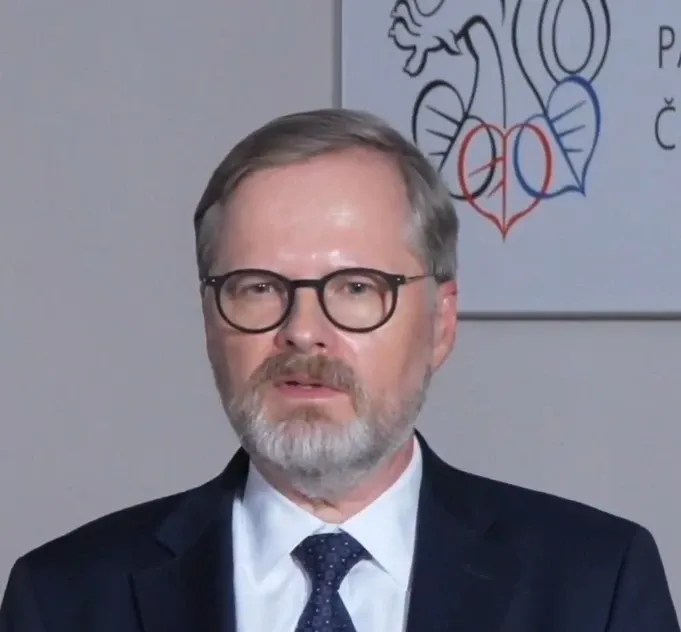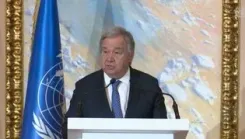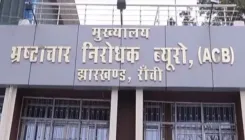Did the Czech government dodge a no-confidence vote over a Bitcoin scandal?

Synopsis
Key Takeaways
- The Czech government led by Prime Minister Petr Fiala survived a no-confidence vote.
- The vote was initiated by the opposition ANO party.
- A controversial Bitcoin donation linked to a convicted criminal sparked the scandal.
- Justice Minister Pavel Blazek resigned as a result of the controversy.
- Prime Minister Fiala defended the government's actions amid criticism.
Prague, June 19 (NationPress) The coalition government of the Czech Republic, under the leadership of Prime Minister Petr Fiala, successfully navigated a no-confidence vote in the parliament on Wednesday evening, amidst a controversy surrounding a Bitcoin donation.
The motion, put forth by the opposition ANO party, received only 94 votes—seven fewer than the required 101 to remove the government. Support came from the ANO, SPD, and the Pirate Party.
Members of the ANO party raised concerns regarding a billion-crown donation in bitcoins, which was said to have dubious origins, directed towards the Ministry of Justice. Reports suggest that this donation came from an individual with a history of drug trafficking and additional offenses.
This situation ultimately led to the resignation of Justice Minister Pavel Blazek, as reported by Xinhua news agency.
In his resignation announcement last month, Blazek asserted that he was unaware of any illegal activities by the ministry. Prime Minister Fiala expressed his belief that Blazek had acted with good intentions, yet he described the acceptance of the contentious Bitcoin donation as an unnecessary issue that could have been avoided.
ANO leader Andrej Babis criticized the government for losing its moral standing and called for the resignation of Finance Minister Zbynek Stanjura, whom he considers pivotal in the Bitcoin controversy.
"This is not merely about specific individuals but rather a system where the Minister of Justice feels above reproach. Prime Minister Fiala's administration has diminished its moral credibility," he stated during the parliamentary session on Tuesday.
Fiala dismissed the allegations, asserting that the government continues to be stable and has sufficient support.









